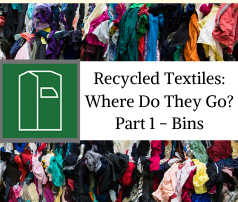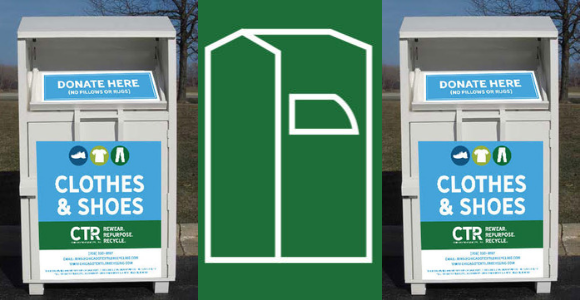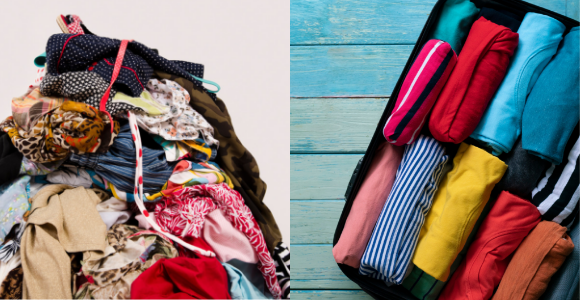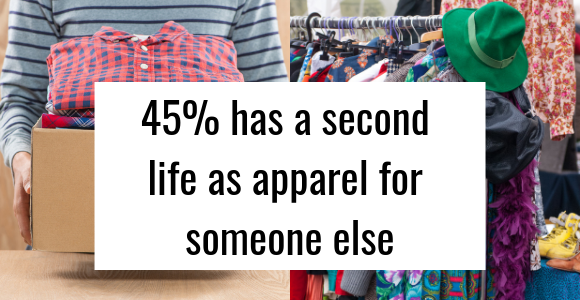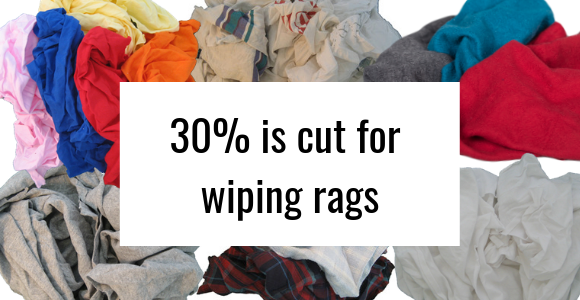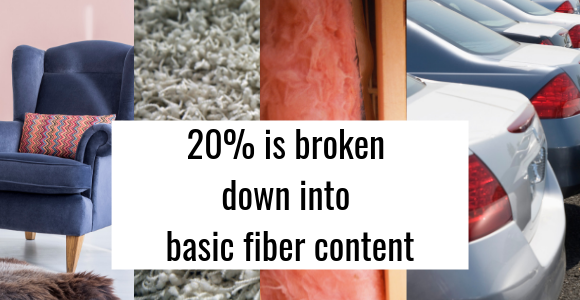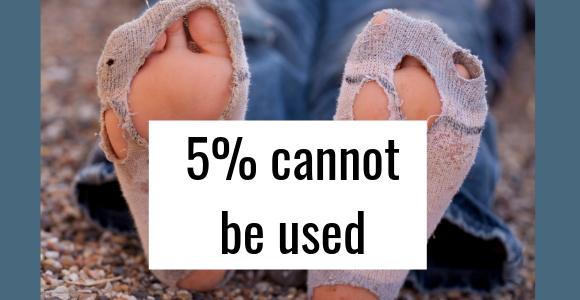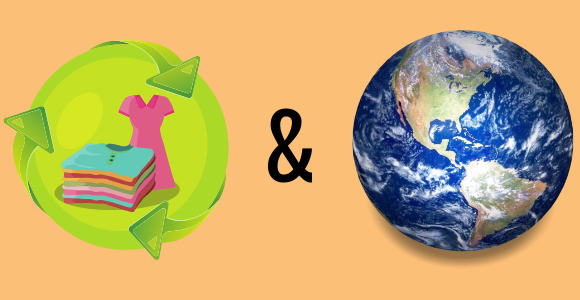 Recycling Process
Recycling Process
Recycled Textiles: Where Do They Go? Part 2 –…

Two weeks ago, CTR posted about what happens to your textiles when you donate to one of our bins. (READ ABOUT IT HERE) This week we are focusing on the journey your textiles take when donated to a resale store, such as Goodwill, Salvation Army or your local resale shop. What happens after you drive up and drop off your bags? How much is kept and resold in store, and what happens to the rest? Where do they wind up next? This post will tell you more about where recycled textiles go once they leave your home.
First Stop – Resale Store
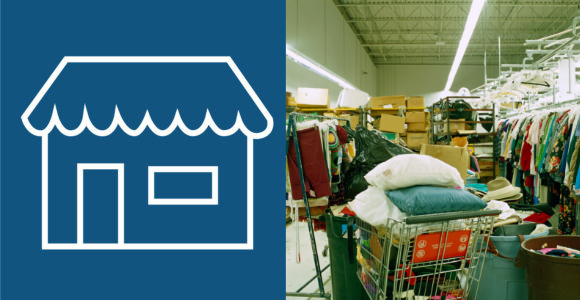
Just like with donating at a bin, it starts with you, the recycler. Marie Kondo or the season of Spring or just the overwhelming clutter has finally inspired you to go through your house and clean out the closets and dressers, your linens and shoes. You bag all of it up, and put it in your car, and breathe a sigh of relief that you have purged the excess. Next up is a short drive to your nearest resale store where you can unload the stress of too much stuff and feel good about your textiles living another life in someone else’s closet and home. As you drive away, you may wonder where does it all go?
Workers at resale stores first divide items into clothes, toys, housewares, etc. The next group of workers then goes through each donated item and checks for stains, rips, and odors. Clothes that are wet or have mildew are tossed into the trash to head for the local landfill as they are unusable.Stained or torn items as well as those that are out of fashion are bundled for recycling. Items are then assessed by what the store would likely resell and prepared for the store floor. Elizabeth Cline, author of “The Conscious Closet: The Revolutionary Guide to Looking Good While Doing Good” states that “on average, most resale stores and thrift shops only sell 20 to 25% of the donations they receive, and the rest is sent onward to exporters or recyclers.” .
Sometimes items are even chosen for the sales floor but after a few weeks of not selling, are then taken off the floor and sent onward. Each store has their own timeline for turning inventory, but all of them try to have something new to offer for customers.
From here – the journey is the same as those items donated to a textile donation bin. We’ve outlined the process here, but you can read about it in full detail in our last blog post – “Recycled Textiles: Where Do They Go? Part 1 – Bins”.
Second Stop – Consolidating Warehouse
Next stop is a consolidating warehouse, such as the one we have at Chicago Textile Recycling. For more information, visit our website.
Third Stop – Sort and Grade
The textiles then move onto graders to be sorted for their final stop.
Fourth and Final Stop (Option 1) – Reuse
Whether the resale store deems it sellable or it is sent to other countries to resell, almost half of donated textiles are resold to enjoy a second life with someone else.
Fourth and Final Stop (Option 2) – Wiping Rags
Our parent company, Wipeco, Inc. uses recycled textiles to cut into wiping rags and resell to buyers.
Fourth and Final Stop (Option 3) – Reprocessing
Many textiles are broken down for insulation, etc.
Fourth and Final Stop (Option 4) – Landfill
A few textiles are at their end of life and have no other possible stops but a landfill.
Taking Care of our Earth
Finally, Chicago Textile Recycling often receives the question, “What should I do with my items that are not good enough to donate to a resale store?” In every case, it is best to donate it anyway, even if you are unsure. Resale store employees are trained to assess if an item should go to the sales floor or on to a recycler and most recyclers purchase those items that don’t make the cut. Although these items sell at a lower rate than pristine conditioned resalable items, many resale stores are non-profits who rely greatly on any additional funds they can generate for the causes they initiate. Rarely will they refuse a donation. If you are interested in finding a resale store near you that recycles, please CONTACT US and we’d be happy to point you to one of our partner stores in your area.
Elizabeth Cline quotes taken from this article
